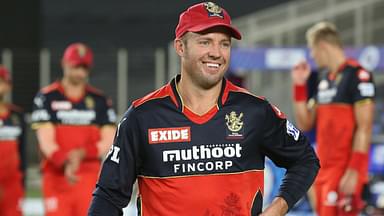Why did AB de Villiers retire from International Cricket? ABD himself answers in a candid interview, citing pressure as the major reason
Advertisement
South-African batsman, AB de Villiers had shocked the cricketing world by announcing an abrupt retirement from all forms of International cricket in the month of May. In a recent interview, the former Proteas captain admitted that he is relieved to have quit international cricket as the pressure was unbearable at times.
At the time of announcing his retirement, de Villiers had cited tiredness to be a factor in him taking the decision to call it a day.
“It’s been unbearable at times: the pressure you have to face, performing day in and day out. The expectations that you put on yourself, from fans, from the country, from coaches. It is huge, and it’s something that’s on your mind all the time as a cricketer,” de Villiers told Independent.
De Villiers amassed 8,765 runs at an average of 50.66 in Tests and a further 9,577 at 53.50 in ODIs over his career span of 14 years. De Villiers possessed a unique combination of traditional strokeplay and unorthodox shots in his skill-set.
The 34-year-old added that he doesn’t regret taking a decision to call it quits and is happy to have stepped away.
“I know nothing will compare to that feeling of scoring hundreds in a big game. Thousands of people chanting your name.
“But in all fairness, it’s definitely something that I’m not going to miss. Not yet. I’m very happy to have stepped away. Absolutely no regrets,” added de Villiers.
When de Villiers was asked if he felt relieved after retiring from international cricket, he said, “Massively. Yes. I know the right answer is probably to say I will always miss the game.
“But I truly believe that players who tell you they don’t feel the pressure of international cricket, being away from home for months at a time, are lying to everyone and themselves,” said the star batsman.
AB de Villiers, who was known for his attacking strokeplay, holds the world record for the fastest half-century, hundred and 150 in ODIs.
“I was prepared to embrace it, to fight the pressure. And I’m happy that I did. But it certainly takes his toll after a while. I feel there is room for players to be more honest about it, having systems in place to make sure they keep fresh and mentally healthy,” he said.
“I was certainly not mentally ill at the time, but I can relate to the fact that pressure can really drive you down, and make you so tired.” he concluded.



